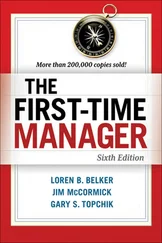Джон Болл - The First Team
Здесь есть возможность читать онлайн «Джон Болл - The First Team» весь текст электронной книги совершенно бесплатно (целиком полную версию без сокращений). В некоторых случаях можно слушать аудио, скачать через торрент в формате fb2 и присутствует краткое содержание. Год выпуска: 2013, Жанр: Триллер, на английском языке. Описание произведения, (предисловие) а так же отзывы посетителей доступны на портале библиотеки ЛибКат.
- Название:The First Team
- Автор:
- Жанр:
- Год:2013
- ISBN:нет данных
- Рейтинг книги:5 / 5. Голосов: 1
-
Избранное:Добавить в избранное
- Отзывы:
-
Ваша оценка:
- 100
- 1
- 2
- 3
- 4
- 5
The First Team: краткое содержание, описание и аннотация
Предлагаем к чтению аннотацию, описание, краткое содержание или предисловие (зависит от того, что написал сам автор книги «The First Team»). Если вы не нашли необходимую информацию о книге — напишите в комментариях, мы постараемся отыскать её.
Student protesters are being slaughtered in the Midwest.
The Jewish pogroms have begun.
You are now living in Soviet — occupied America!
One nuclear submarine and a handful of determined patriots against the combined might of Russia and Soviet-occupied America… The Most Explosive and Gripping “What If” Novel of Our Time!
First published January 1971
The First Team — читать онлайн бесплатно полную книгу (весь текст) целиком
Ниже представлен текст книги, разбитый по страницам. Система сохранения места последней прочитанной страницы, позволяет с удобством читать онлайн бесплатно книгу «The First Team», без необходимости каждый раз заново искать на чём Вы остановились. Поставьте закладку, и сможете в любой момент перейти на страницу, на которой закончили чтение.
Интервал:
Закладка:
“Such a good man Mr. Farkas is. But will he be here to help us when we need it?”
Morris smiled and stepped back so that he could hold out his arms in confidence. “Of course! Didn’t you know, he works as a partner with a gentile. A WASP yet, but a good man too; I trust him.”
“Aw, quit your kidding,” David interjected. “Who the hell knows if we’re ever coming back. Or if we’ll want to. Everybody seems to think that in a little while this’ll all blow over.” He flung himself down onto the davenport. “Crap, we’re Jews and we’ve been taking it on the lam since Moses, so what do you expect to have happen now.”
Esther was shocked. “David, such language! And in your father’s presence. You should be ashamed!”
Morris Glickman rose above his son’s outburst. “Gather around,” he said. Obediently his wife and elder son drew up chairs close to his own when he sat down; after a few seconds David dragged in one of the dining chairs and reluctantly did as he had been bidden.
“It is time,” Morris began, “that we should count our blessings. First, no matter what these people do to our country, in two weeks we can be out of here and out of their reach. We will be safe. How many Polish Jews didn’t have that chance just before — excuse that I say the word — Hitler.”
He leaned back and placed his fingertips together. “Second, for thousands of years other Jews have had to move when they had no place to go. Now we have Israel — we are entitled to live there and to become citizens if we want.”
“And have to join the Army,” David concluded.
His father looked at him; his features hardened and there was no love in his voice when he spoke. “David, for the first time I say it; I am ashamed of you. You are a coward. You would not fight for the United States of America where we belong, now you want to escape helping the one country where we will be made welcome and offered everything we need — the Jewish homeland.”
“I’m no damned soldier,” David said.
“No, a soldier you’re not, but God willing where were going they’ll make you one. And a better man you’ll be for it. My brother Herman died for this country; if we had had more Hermans in our Army, maybe we wouldn’t have the trouble we’ve got now.”
“O.K., he died — how did that help him?”
Morris ignored that. When they reached Israel it would be different; they would straighten David out. “I think,” he said, “we ought to tell papa right away.”
“Before dinner?” Esther asked.
“Yes — now. And we all go, otherwise he might not believe it.” “All right,” David grumbled. “I know what you mean. I’ll come.” Bravely Esther led the way down the narrow corridor to the back room. She tapped lightly on the closed door, then opened it a small fraction and looked inside. “Daddy, it’s us,” she announced.
As she entered the room old Ishmael Goldblatt looked up in concern. His expression deepened as the whole family trooped in, first Morris, his son-in-law, then the two boys, Moshe and David. He sat defensively, hunched in his rocking chair, a shawl draped across his shoulders for comfort, his gray hair straggling out from under his yarmulke like a tonsured priest. His glasses were perched halfway down on his nose in defiance of the optometrist’s careful instructions because it suited his purpose better to wear them that way. As he stared at the assembling family, distrust deepened in his eyes: not of them, but of the thing, whatever it was, that had brought them to him in this manner. For he regarded every unknown thing, every unvouched-for person with a deep, ingrained, and perpetual suspicion.
“Daddy, we want to talk to you,” Esther said. The words flowed from her in Yiddish with an easy grace; she was proud of her English, but her father had disdained to learn the new tongue — he had no need of it.
“What’s wrong? What’s wrong?” The old man’s sunken eyes narrowed as he spoke and he thrust his head out as though to peer into the face of adversity.
There were only two other chairs in the sparsely furnished room. Esther sank into one of them while her husband, a little gingerly, eased into the other.
“Daddy, nothing is wrong,” Esther assured. “We came to see you because this is a great day in our lives.”
The old man turned his mind inward, but he could think of nothing to celebrate and his face revealed his consternation.
“We’ve been saving our money,” Esther continued. She took a fresh grip on herself as the searching eyes of her father probed into hers, trying to read out whatever she might be concealing from him. It was hard for her, but she continued with a smile on her face. “Morris has been doing well, and the boys have contributed too.”
“So what do you want to spend it on?” Ishmael asked. His shoulders stiffened and he became as shrunken hard as a walnut shell.
Morris came to his wife’s rescue. “Daddy,” he said, “all of us, we have been having a dream. For this we have saved our money and for this we have worked.”
“What kind of a dream? I don’t like dreams, they’re expensive.” “Expensive, yes,” Morris continued, “but for what is money anyway? We want to move, daddy, and now we have enough so that we can.”
The old man began to rock in very short arcs, as though to emphasize the manner in which his mind was working. “So why should we move?” he asked. “Here it isn’t too good, but not too bad either. Morris, he has his work. To move to a better place just to live higher in society, it would be a throwaway — foolishness. We are happy here, we should stay here.”
“Daddy, you don’t understand,” Esther said. Her voice became soft as though she were about to bestow a loving gift. “We aren’t going to move just to another part of town. Brooklyn is Brooklyn. We’re going to move — to Israel!”
At first the old man did not believe her. He did not believe anything until it had been proven to him, he accepted only the words of the threadbare Talmud which lay, as it almost always did, on his lap. “Israel?” He almost croaked out the word.
“Yes,” Esther answered. “Yes!”
“Israel.” The word seemed to stun him. He considered it, then sat silently, trying to think.
Morris knew him well. “Daddy,” he said. “We have the reservations already. In two weeks we go. One day after we leave we will be in Jerusalem. Then, daddy, you can go to the Wailing Wall. All Jerusalem you can visit now. Our homeland.”
Old Ishmael Goldblatt retreated within himself. As they watched him the arcs of his rocking began to lengthen and his bony thin hands loosened their tension on top of the book in his lap. At one time in his youth he had dreamed of helping to free the Holy Land and restore it to his people. He had never seen it with his own eyes, but it had been a vivid image in his mind for fifty years.
“Maybe they won’t let us go,” he said. The words seemed to form automatically on his lips.
Morris spread his hands palms up. “So why not?” he asked. “We’ve got the money, we can pay. I’ve spoken for the tickets already. A special flight; lots of Jewish people are moving to Israel because business has not been good lately. With them we go cheaper.”
“Flight?” the old man questioned. “An airplane yet? No.” He shook his head defiantly.
“Daddy,” Esther said, “if you are wanting to go by boat, then we go by boat. But it costs a lot more; we’ll have to wait and save more money.”
Her father looked at her in suspicious disbelief. “The boat costs more?”
Esther nodded vigorously. “Yes, daddy, so many more meals they have to serve, so much longer they have to take care of you. And bedrooms for everybody yet.”
Читать дальшеИнтервал:
Закладка:
Похожие книги на «The First Team»
Представляем Вашему вниманию похожие книги на «The First Team» списком для выбора. Мы отобрали схожую по названию и смыслу литературу в надежде предоставить читателям больше вариантов отыскать новые, интересные, ещё непрочитанные произведения.
Обсуждение, отзывы о книге «The First Team» и просто собственные мнения читателей. Оставьте ваши комментарии, напишите, что Вы думаете о произведении, его смысле или главных героях. Укажите что конкретно понравилось, а что нет, и почему Вы так считаете.












